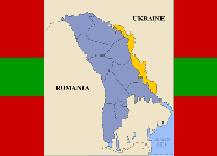For Global Voices: Even before the smoke from Monday's Minsk Metro blast dispersed, the dual question of: "What is to be done? - Who is to blame?" arose in the Belarusian blogosphere. Two major strands of thought dominate, blaming either President Lukashenko or the political opposition, although a deeper sentiment of sympathy for the victims seems to unite the people of Minsk.
Although oppositional voices vary in passing the blame on Lukashenko and his regime, the overall impression is that this is what such a repressive system produces, by mechanisms of defunct societal interaction. LJ user svobodoff, for example, thinks that [ru] "the explosion has covered the regime in blood":
Такого кошмара люди в относительно спокойной когда-то Белоруссии от режима Лукашенко ещё не ожидали. Последние несколько лет существования диктатуры преподносили много неприятных "сюрпризов" для миролюбивых белорусов, но никто не думал, что это может зайти так далеко.
"Such a nightmare, the people of the previously relatively peaceful Belarus had not expected from Lukashenko's regime. The last few years of the dictatorship's existence have heralded many unpleasant "surprises" for peace-loving Belarusans, but nobody thought that it would go this far."
Bloggers loyal to the regime reacted with vehemence against any attempts to pin the blame on the Lukashenko regime, as LJ user lyavon did [ru]:
Не успел рассеяться дым от взрыва, как в интернете словно по команде появились сотни постов с обвинениями в адрес властей... авторам уже все ясно - виноват опять президент. Злобная Петра на минскбае, засучив рукава, банит всех, кто пытается высказать мнение, отличающееся от утвержденного из Вашингтона. Просто п[---]ц, у этих свиней нет никакой совести... Люди! Одумайтесь!!! Нельзя так бесстыдно использовать чужие страдания!!!зы: судя по всему, это попытка разыграть египетский сценарий... сейчас будут призывать идти на плошчу и тд и тп...
"The smoke from the explosion had not even settled, before hundreds of posts, as if by command, appeared on the Internet with accusations directed towards the government... For the authors, everything was already clear - the president is once again to blame. Like a vicious Peter on Minskby [Minsk web community], with sleeves rolled up, banning everyone, who tries to express an opinion, which diverts from the one stipulated by Washington. It is simply **** that these swines have no conscience... People! Come to your senses!!! One should not so shamelessly exploit others' misery!!!
P.S. By all apperances, this is an attempt to unfold an Egyptian scenario... Now they will urge [us] to take to the square and so on..."
But there are also reactions against the polarization of interpretations. Thus, LJ user khatskevich writes [ru]:
Вчера произошло два ужасных события. Теракт и реакция на него. Страшно подумать – буквально не успели кровь смыть, как в блогах и твиттере прогрессивная общественность уже стала делать выводы и бросать обвинения. Оппозиция винила власть и белорусские спецслужбы, лоялисты винили оппозицию и зарубежные спецслужбы. Смешалось в кучу всё – доллары, сахар, Ливия – всё, что могло послужить хоть каким-то обоснованием пропаганды. [...] Лично мне кажется, что все эти домыслы и взаимные обвинения похожи на то, как если бы блогеры сбегали на Октябрьскую, перемазались в крови жертв, и стали бы кричать всякие лозунги, типа «это кровь жертв режима!» или «эту кровь пролили отморозки из пятой колонны» [...]. Люди, вам не стыдно? Да, мы по разные стороны политических баррикад. Но разве это повод уподобляться всякой нелюди и устраивать пиар своих идей на крови жертв теракта? Мы что, не в состоянии отбросить идеологические противоречия в эти страшные дни и просто побыть людьми?
"Yesterday, two terrible events occured. The terror act and the reaction to it. It is awful to think, but the blood had literally not been washed away before the progressive public already began to draw conclusions and make accusations. The opposition blamed the government and Belarusian special services, the loyalists blamed the opposition and foreign special services. Everything was mixed up in a nice heap - dollars, sugar, Libya - everything that could serve as any basis for propaganda. [...] Personally, I think that all these speculations and mutual accusations are as if bloggers ran down to Oktyabrskaya, smeared with the blood of the victims, and began to call out such type of slogans as "this is the blood of the regime's victims!" or "this blood was shed by the thugs of the fifth column" [...] People, are you not ashamed of yourselves? Yes, we may stand on opposite sides of the political barricades. But is this really a reason to characterize everyone as inhumane and make PR for your ideas by the blood of an act of terror? Are we not able to set aside ideological contradictions during these terrible days and simply be people?"
By the end of the day, perhaps some of the last sentiments may prove closest to the truth. It seems that people are simply fed up with the classical duality of "What is to be done? - Who is to blame?" when things go wrong. What this means for Belarus, only the future can tell, but at least it may be a sign of fatigue from the polarized divide between repression and resistance in the country.





